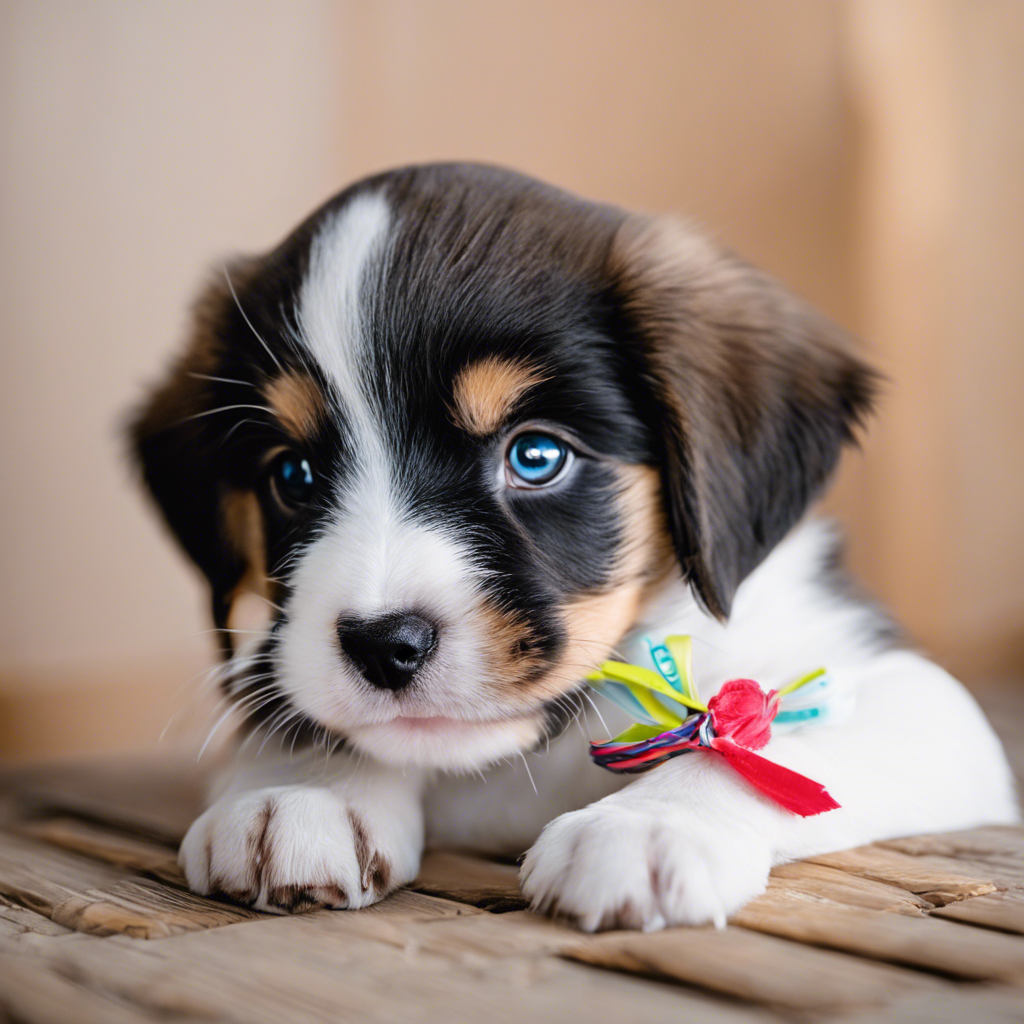# Puppy Dental Care: Starting Good Habits Early
As a proud puppy parent, you’re probably focused on teaching your furry friend all the essential manners and tricks. But have you considered the importance of their dental health? Just like humans, dogs need proper oral care to prevent dental issues and maintain overall well-being. Starting good dental habits early can ensure your puppy grows up with a healthy and sparkling smile.
## Why is Puppy Dental Care Important?
Puppies, like human babies, are born with temporary teeth that eventually fall out and are replaced by permanent ones. During this teething process, they experience discomfort and may chew on anything they can get their tiny paws on! Providing appropriate chew toys and starting dental care early can help soothe their sore gums and redirect their chewing habits. Additionally, good oral hygiene can prevent various dental issues in the long run, such as gum disease, tooth decay, and bad breath. You’ll want to keep those puppy kisses fresh and odor-free!
## When to Start Dental Care
You can begin dental care for your puppy as early as 8 weeks old, which is when they typically go to their new homes. At this age, puppies start getting their baby teeth, and the teething process begins. It’s the perfect time to introduce them to the concept of toothbrushing and oral hygiene. By the age of 6-7 months, your pup will have all their adult teeth, and consistent dental care will become even more crucial.
## The Right Tools for the Job
Before you start your puppy’s dental routine, you’ll need the right tools. Choose a soft-bristled toothbrush designed explicitly for dogs, as human toothbrushes can be too firm for their delicate gums. Alternatively, you can use a finger brush, which fits over your finger and allows you to gently clean their teeth and gums. You’ll also need dog-friendly toothpaste, as human toothpaste contains ingredients that can be harmful to dogs if ingested. Dog toothpaste comes in various flavors, like poultry or beef, making it more appealing to your pup.
## Introducing the Toothbrush
Introducing your puppy to the toothbrush is a gradual process. Start by letting your pup sniff and lick the toothpaste from your finger, and then gently touch their teeth and gums, allowing them to get familiar with the sensations. The next step is using your finger or a finger brush to spread the toothpaste on their gums and teeth. After a few days of this, introduce the toothbrush and gently brush their teeth in small circular motions. Be patient and go slowly, ensuring the experience remains positive for your pup. Provide lots of praise and rewards to create a positive association with toothbrushing.
## Establishing a Routine
Aim to brush your puppy’s teeth at least three times a week, gradually building up to daily brushing. Consistency is key to making dental care a normal part of your puppy’s routine. The earlier you establish this habit, the easier it will be for both you and your dog. Make toothbrushing a fun and rewarding experience, and your pup will happily cooperate.
## Preventing Dental Issues
In addition to toothbrushing, there are other ways to support your puppy’s dental health. Provide them with safe and durable chew toys to help keep their teeth clean and strong. Avoid hard objects that could damage their teeth or pose a choking hazard. Offer a variety of chew toys to keep them interested and prevent boredom. Feeding your puppy high-quality dog food and limiting treats can also contribute to better dental health. Avoid feeding them table scraps or sugary human foods that can lead to tooth decay.
## The Importance of Professional Care
Just like with your own dental care, your dog’s teeth should be checked by a veterinarian regularly. Most vets recommend a professional dental cleaning under anesthesia once a year, depending on the dog’s age and health. During this procedure, your dog’s teeth are thoroughly cleaned and polished, and any necessary dental work is performed. Good at-home dental care can help reduce the frequency and extent of professional cleanings, saving you money and keeping your pup in top shape.
## Signs of Dental Problems
Keep an eye out for signs of dental issues in your puppy. These may include bad breath, excessive drooling, swollen or bleeding gums, difficulty eating or chewing, pawing at the mouth, or changes in behavior. If you notice any of these symptoms, consult your veterinarian for advice. Some dental issues can lead to more severe health problems if left untreated, so early intervention is essential.
## Training Through Treats
Incorporating dental treats into your puppy’s routine can be a tasty way to support their oral health. Look for treats specifically designed to promote dental hygiene, such as dental chews or rawhide bones. These products are made to reduce plaque and tartar buildup and can be an enjoyable addition to your pup’s diet. Just remember to choose products suitable for your dog’s age and size and always supervise them while they enjoy these treats.
Starting good dental habits early with your puppy will set them up for a lifetime of healthy teeth and gums. With patience, consistency, and the right tools, you can make toothbrushing a fun bonding experience for both you and your furry best friend. So, get ready to show off those pearly whites and enjoy countless fresh puppy kisses!

